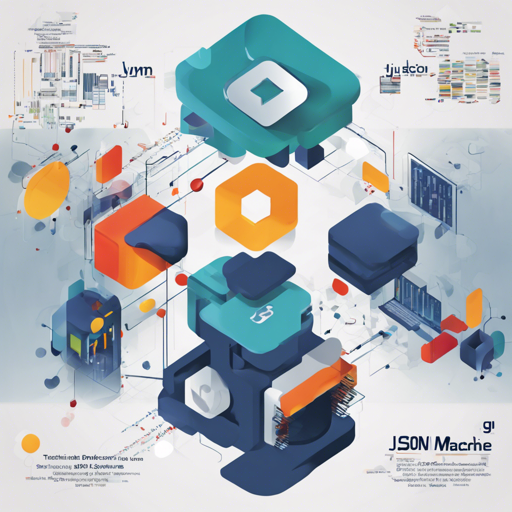Welcome to your friendly guide on how to utilize the DSL-JSON library, a lightning-fast JSON handling tool for Java, Android, Scala, and Kotlin. In this article, we’ll break it down into bite-sized sections, ensuring you’re acquainted with its remarkable features and how to troubleshoot common issues you might encounter.
Why Choose DSL-JSON?
DSL-JSON stands out from the rest due to its unparalleled performance and compile-time data binding capabilities. Imagine trying to fit a square peg into a round hole – that’s what traditional JSON libraries often do when handling data. DSL-JSON, on the other hand, perfectly customizes the shape of the peg (data) for a smooth fit into the hole (JSON structure).
Key Features
- Works seamlessly with existing POJO classes via annotation processing.
- High performance – outpaces any other Java JSON library.
- Byte-level operations – no need for intermediate character representation.
- Extensible support for custom types and analyzers.
- Streaming support allows for working with large JSON lists efficiently.
Quick Setup Guide
Here’s a simple guide to get you started with DSL-JSON:
Step 1: Add Dependency
For Java or Android, add the following dependency in your `build.gradle`:
dependencies {
compile 'com.dslplatform:dsl-json:2.0.2'
annotationProcessor 'com.dslplatform:dsl-json:2.0.2'
}Step 2: Create Your POJOs
Your plain old Java objects (POJOs) need to be annotated with @CompiledJson. For example:
@CompiledJson
public class User {
public String name;
public int age;
}Understanding the Code with an Analogy
Consider using DSL-JSON like preparing a gourmet meal. You have fresh ingredients (your POJOs) that need to be expertly crafted and transformed into a dish (JSON). Simply mixing them might lead to a messy result. With DSL-JSON’s annotation processing, you’re having a professional chef (the library) handle the expectations precisely, ensuring every ingredient is treated the right way and plated beautifully (ensuring optimized JSON output). The chef’s expertise in knowing how long to cook each ingredient, when to add spices (performance optimizations), and how to present the final dish (the serialized JSON) is what makes the outcome worth the effort.
Troubleshooting Common Issues
Compilation Errors: If you face compilation errors while using the annotation processor, the culprit could be a missing dependency for Java 9+. Verify your environment’s compatibility.
Annotation Processor Not Working: Double-check that the correct annotations are used, and your configurations are set accurately. If problems persist, inspect the generated code for potential issues.
For more insights, updates, or to collaborate on AI development projects, stay connected with fxis.ai.
Best Practices
- Reuse `JsonWriter` and `JsonReader` to enhance performance.
- Utilize byte[] instead of String for processing JSON.
- Take advantage of the compile-time safety offered by the library.
Is DSL-JSON for You?
If you’re keen on harnessing the power of data with efficiency and speed, DSL-JSON is perfect for you. From annotation processing to streamlined performance, this library transforms how Java handles JSON.
Conclusion
At fxis.ai, we believe that such advancements are crucial for the future of AI, as they enable more comprehensive and effective solutions. Our team is continually exploring new methodologies to push the envelope in artificial intelligence, ensuring that our clients benefit from the latest technological innovations.

